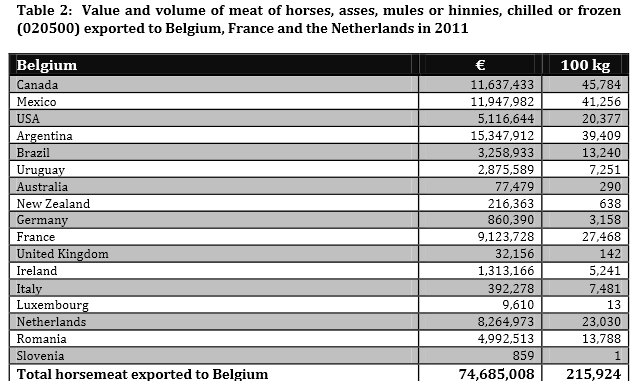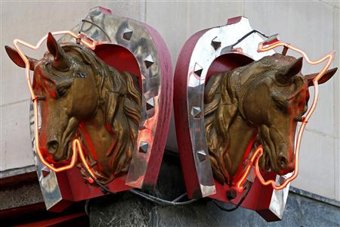Chevideco’s Diabolical Plan to Slaughter 100,000 Belgian Horses
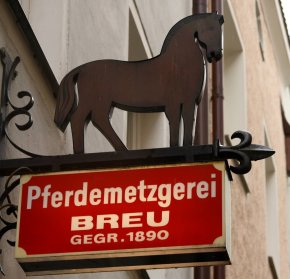 Written by: Heather Clemenceau
Written by: Heather Clemenceau
Thousands of horses are slaughtered in Belgium each year. Not all these horses were raised in that country either – many were transported across the borders from the Netherlands and France for slaughter. While horsemeat is readily available in Belgium, this doesn’t necessarily translate into across-the-board social acceptance of eating horses, nor does it mean that the entire population of Belgium enthusiastically engages in the practice. The results of an Ipsos survey in Belgium revealed that while 67% of respondents had eaten horsemeat at some point in their lives, a mere 4% actually claimed to eat it frequently.
Belgium slaughters a relatively small number of horses (relative to North America, that is). The last available stats courtesy of HSI (Humane Society International) explains why Belgium also imports large amounts of horsemeat from other countries.
Horses Slaughtered Within Belgium
2007 – 10,149
2010 – 8,926
2011 – 9,613
Source: An investigation into the availability of horsemeat in Belgium, France, and the Netherlands – http://www.hsi.org/assets/pdfs/horses_EU_horsemeat_retail_investigation_Oct2012.pdf
Chevideco and all horse slaughterhouses treat horses as an agricultural product – a mere commodity. Olivier Kemseke, the General Manager, also slaughters local horses too, in a slaughterhouse located in a run-down neighbourhood (would you expect any other kind?) in central Brussels. Kemseke sometimes personally inspects the horses at the abattoirs while wearing a butcher’s robe.
Chevideco General Manager – Olivier Kemseke
As most followers of the horse slaughter issues know, Chevideco was forced to close a profitable slaughterhouse in Texas. That company owned the former Dallas Crown slaughterhouse that former Mayor Paula Bacon and others so carefully documented and chronicled. From a US perspective, one of the best “go-to” persons is obviously Paula Bacon, who has always been more than willing to provide documentation from the Public Works Director, former Kaufman City Manager, Presbyterian Hospital, the daycare center, and the Police Chief, to support her claims about Dallas Crown, which had a very long history of violations to their waste permit. The city was even fined by the TCEQ for the plant’s failure to comply with backflow regulations that meant horse blood and waste backed up into sinks, toilets and tubs. When the plant finally closed, the city was left with nearly $100,000 in unpaid fines.
Dallas Crown consistently denied the City access to their property for wastewater testing despite requirement by city ordinance, city permit agreement, and court order. City staff reported that a $6 million upgrade to the wastewater treatment plant would be required even though the plant was planned and financed to last through 2015. There were numerous examples of offal and hides being transported through main thoroughfares in containers without covers, as well as problems with bones and other body parts in neighbouring yards, resulting in the attraction of “dogs and other animals.”
In response to 29 citations for wastewater violations, each accompanied by a potential fine of $2,000, Dallas Crown requested 29 separate jury trials, potentially causing yet another economic strain to the City’s budget. The cost to litigate against Dallas Crown consisted of the entire legal budget for the fiscal year. During this period, Dallas Crown paid property taxes that were less than half of what the City spent on legal fees directly related to Dallas Crown violations. Dallas Crown was completely adversarial in Kaufman Texas. Only the 1949 Texas law banning horse slaughter for human consumption finally got rid of them after a protracted battle in the Fifth Circuit Court of Appeals.
So, Dallas Crown and therefore its parent company, Chevideco, were hardly the most upstanding corporate citizens. Not atypically though, horse slaughter interests are arrogant and not accustomed to being challenged. Dallas Crown and the rest of the foreign-owned US slaughterhouses seemed to think that laws and communities can be ignored with impunity.
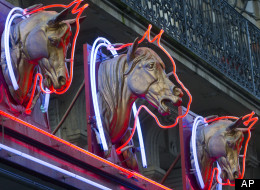 Despite the fact that Belgium is importing large amounts of horsemeat from other countries, Kemseke has set his gaze on slaughtering the large percentage of horses that are not incorporated into the Belgian passporting system. He basically wants to slaughter as if there is no passporting system of horses at all. This continues Chevideco’s conscious policy and practice of taking selfish advantage of circumstances with little regard for principles or for the consequences of these horses and the people that own them. He views this as a monumental cash grab (he estimates these horses are worth 60 million €) and couches the whole sordid, self-interested mess as one driven by his humanity for horses. That’s right – slaughter them for food – BEFORE they can be abused and neglected.
Despite the fact that Belgium is importing large amounts of horsemeat from other countries, Kemseke has set his gaze on slaughtering the large percentage of horses that are not incorporated into the Belgian passporting system. He basically wants to slaughter as if there is no passporting system of horses at all. This continues Chevideco’s conscious policy and practice of taking selfish advantage of circumstances with little regard for principles or for the consequences of these horses and the people that own them. He views this as a monumental cash grab (he estimates these horses are worth 60 million €) and couches the whole sordid, self-interested mess as one driven by his humanity for horses. That’s right – slaughter them for food – BEFORE they can be abused and neglected.
Please read through this and tell me you don’t see right through it just as if you were looking through a fishtank (original here):
There’s much in his proposal that deserves commenting. First of all, note the high percentage of noncompliant horses and owners – Kemseke tells us it’s 41%. To me this is evidence that the Belgians probably aren’t much different from North Americans in that they don’t want the tracking system either.
Secondly, note that Kemseke’s work document tells us that it is really out of concern for FUTURE neglect that he bases this entire premise (the slaughter of 100,000 undocumented horses) on. How did 100,000 un-passported horses suddenly become a “welfare timebomb?”
Of course, the “humane” aspect in this document seems like an afterthought, because Kemseke immediately announces at the start of his work document that the opportunity for capturing this market is potentially 60 million €. What indications does he have that unregistered horses are or will be neglected? Aren’t they currently owned by someone? How will the current owners be forced to enroll in the passport system if they haven’t already? Interesting that Kemseke seems to want the Belgian/EU authorities to enforce passporting or accept his work-around so that it can ultimately enrich his pocketbook.
He goes on to list the industries that will benefit by slaughtering these horses, suggesting that these industries can only exist by the grace and favour of the horse slaughter industry. One of these is apparently the leather industry. Please someone, for God’s sake, think of the cordovan leather industry!
Kemseke includes Pharma as one of the beneficiaries of horse slaughter. Apparently he has found other means by which to capitalize on some of the inedible byproducts of horse slaughter – the lower legs of horses which yield tendons that 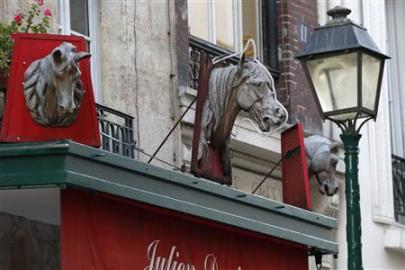 Chevideco has multi-purposed off to the medical products industry. The horse tendons are being reclaimed to be used in a product called Tachocomb®, used to stop bleeding during surgery. It’s basically a biological sponge that absorbs blood during surgery, and like Premarin® and Prempro®, there are probably non-biologic alternatives to using it too.
Chevideco has multi-purposed off to the medical products industry. The horse tendons are being reclaimed to be used in a product called Tachocomb®, used to stop bleeding during surgery. It’s basically a biological sponge that absorbs blood during surgery, and like Premarin® and Prempro®, there are probably non-biologic alternatives to using it too.
He goes on to state that it is morally wrong to disregard a good source of protein with people in the world starving. But that statement begs the question – what is Kemseke’s plan for feeding the poor? What is he currently doing to feed the poor with the horses he does slaughter? Another Trojan Horse. And he presents us with the false dilemma of finding more horses to eat rather than resorting to eating bugs as protein!
He also complains that the feeding and basic maintenance of these horses costs 145 million €. This is a recurring annual cost, additional costs of veterinary and farrier attention has not been considered. Well, who gives a shit? Are these costs coming out of his own pocket? Horses are not on welfare – their owners are paying for this, and it’s driving the economy. If these 100,000 horses were all suddenly slaughtered, regardless of whether they are wanted or not, none of the aforementioned people or businesses are going to get any money!
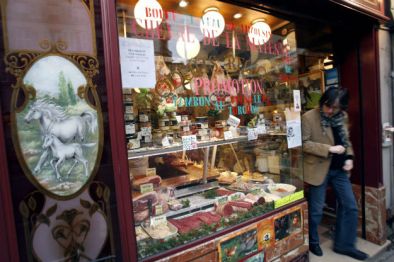 Most worrisome of all is that this work document is intended to set a precedent for other EU countries and probably Canada and the US, where Sue Wallis and Bill DesBarres must be salivating out of every orifice at the thought. However, even if enforcement did happen, that’s no guarantee that he’d get 60 million € from that as he anticipates. It’s likely that those 100,000 horses are all privately owned and nobody is giving them up anytime soon. How many of them would declare that their horses had had drugs? That leaves an even smaller number out of the 100,000 that he would also have to share amongst the other Belgian slaughter organizations such as Velda N.V. and Multimeat N.V.
Most worrisome of all is that this work document is intended to set a precedent for other EU countries and probably Canada and the US, where Sue Wallis and Bill DesBarres must be salivating out of every orifice at the thought. However, even if enforcement did happen, that’s no guarantee that he’d get 60 million € from that as he anticipates. It’s likely that those 100,000 horses are all privately owned and nobody is giving them up anytime soon. How many of them would declare that their horses had had drugs? That leaves an even smaller number out of the 100,000 that he would also have to share amongst the other Belgian slaughter organizations such as Velda N.V. and Multimeat N.V.
The lesson learned here is that even with a passporting or traceability system, sleazy operators will always try to find a work-around to line their pockets. Will it eventually come down to someone in authority agreeing that, despite every procedural mechanism being undertaken to prevent it, even horses with documented bute treatment will eventually all be deemed “slaughter-able” after the passage of six months? Inintended consequences indeed. “Follow the money trail” sounds like such an old Hollywood cliché but it really is true when speaking of corporate corruption.


